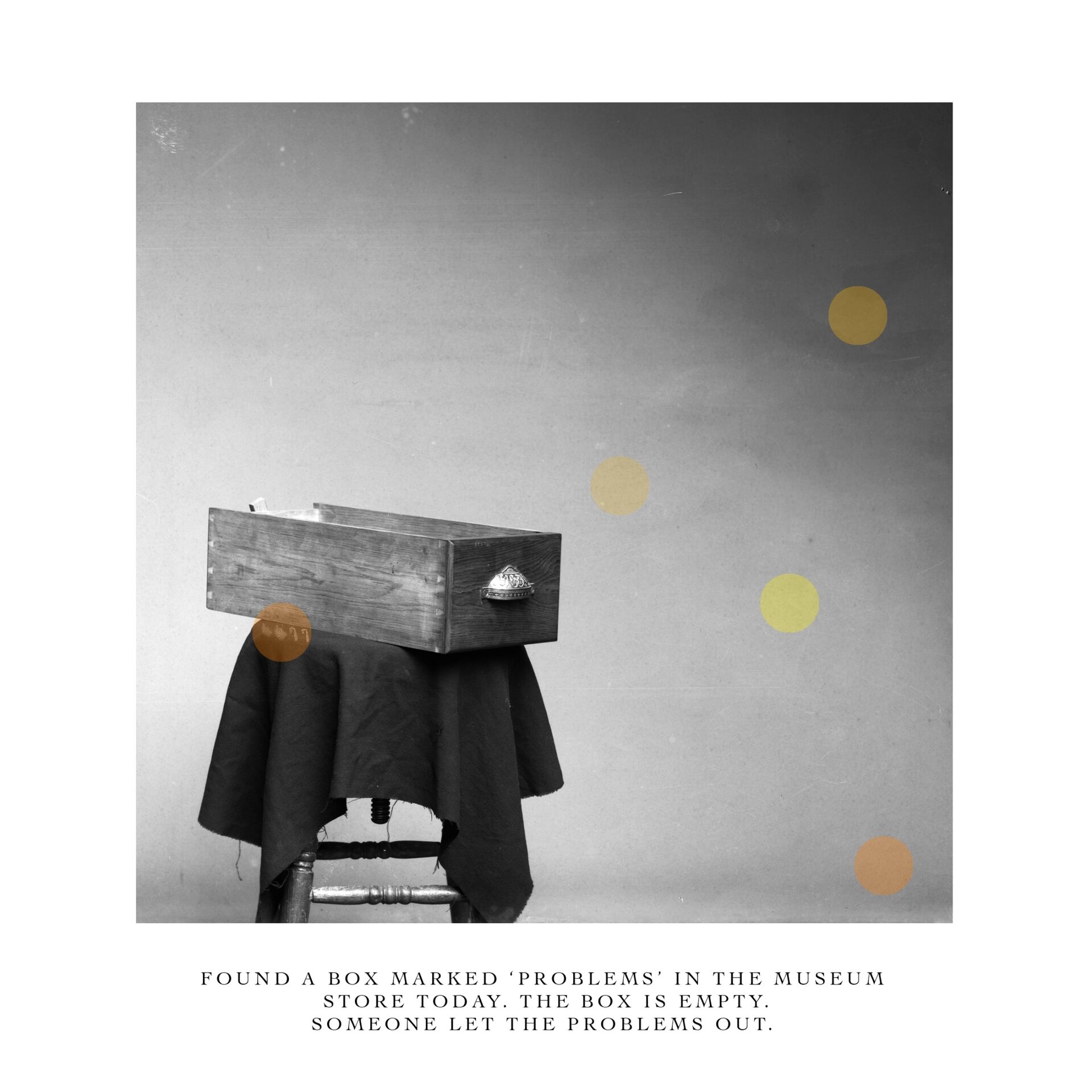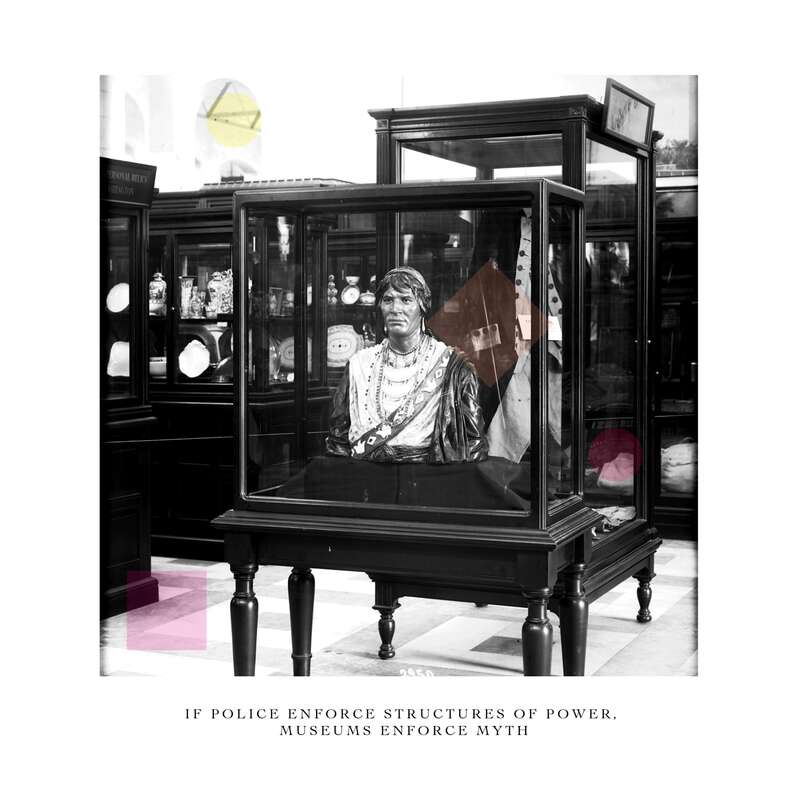
From the series Mountain of Salt (2020-21), a series of 370 works comprising found photographs, appropriated text and digital shape collages.
Note 11: A dictionary suggests itselfChristina Sharpe, Ordinary Notes (London: Daunt Books Originals, 2023), 18.
Delving into Christina Sharpe’s Ordinary Notes has been profoundly moving – Note 11 has particularly fortified in me the collective need to challenge the language we use to justify a kind of homogenised spectrum of words that seemingly adheres to a ‘standard’ paradigm or framework.
As I embark on my artist residency at the National Museums Northern Ireland x UAL Decolonising 20/20 programme – a residency built on unboxing/decolonising a collection through the creation of new work – I have been fervently arranging short notes, singular words, and articulations based on my encounters with the collection and conversations I have with the people who work amongst these objects. This is a way of understanding the inherent cultures that reside within the language used to categorise, collect, and articulate. In some cases, this journey of learning about the collection through the objects can highlight the failure of categorisation, where knowledge may have been lost over time, where objects of cultural significance may become devoid of an understanding.
Sharpe’s astute articulation emphasises the spaces between the parameters we have become accustomed to using as a means of understanding occurrences around us – events, words, people, encounters derivatives, adjunct ideas. Her notes are disquiet, personal, and monumental; unfolding through her observations, social histories, politics, and ingrained cultures, she challenges us to see the overlaps, the layers, the intersections. Through this one ordinary note of the 247 that exist, Sharpe urges us to question why or why not; the notes propel me to look/think/see/probe more deeply, providing provocations or suggestions to think through different possibilities or outcomes – an action to grapple and to attempt change.
Bindi Vora is undertaking an artist residency with the National Museum NI (Ulster Museum) as part of the 20/20 project, led by the UAL Decolonising Arts Institute and supported by funding from Arts Council England, the Freelands Foundation and University of the Arts London.
Note to the reader. This article is part of Trigger’s 2023 ‘Summer Read’ series. We invited writers, researchers, photographers and curators to share what is currently occupying their mind through one publication they have been (re)reading during summer. What matters to them is now being recast as a challenge for today. Highly personal entries to a diversity of publications (photobooks, studies, monography, essay, historical research) lead us – readers of these readers – to reorient our gaze on (the history of) images and photography.
